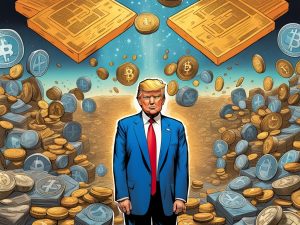Taiwan to Bar Crypto from Presidential Elections to Curb Bribery
The Taiwanese government plans to ban cryptocurrencies from the country’s 2024 presidential elections in order to combat bribery and corrupt practices. This decision comes after the Supreme Court prosecuted over 1,300 cases of election bribery in the past year. The Ministry of Justice in Taiwan has expressed concern about the increasing incidence of corruption and election bribery, with bad actors using digital currencies like Bitcoin to bribe officials.
Key Points:
– Taiwanese Ministry of Justice decries election bribery and corrupt practices, including the use of cryptocurrencies.
– Residents have received billions of yuan in rewards for reporting bribery cases since 2000.
– The apex court has successfully prosecuted bribery cases related to the 2022 nine-in-one election.
– Corrupt officials punished include Tainan City Council Speaker Qui Lili and Deputy Speaker Lin Zhizhan.
– Virtual currencies like Bitcoin, Ethereum, Line Pay, Pi Wallet, and Jiekou Payment are identified as tools for election bribery.
The Taiwanese authorities are collaborating to prevent the use of innovative payment methods, including cryptocurrencies, during the upcoming presidential election in January. While Taiwan is taking measures to control the use of cryptocurrencies in elections, politicians in the United States have accepted crypto donations during their campaigns, and blockchain-based voting has been explored in other jurisdictions.
Hot Take:
By banning cryptocurrencies from presidential elections, Taiwan is taking a proactive step towards combating corruption and bribery. This move shows the government’s commitment to ensuring a fair and transparent electoral process. However, it remains to be seen how effective this measure will be in preventing the illicit use of digital currencies in future elections. The global discourse on the role of cryptocurrencies in politics and governance continues to evolve, with countries adopting different approaches to address the potential risks and benefits.


 By
By

 By
By

